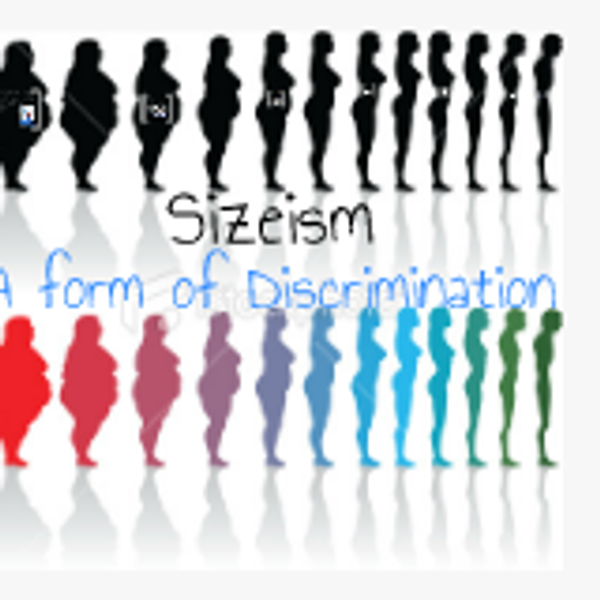In the media women with flawless, and for the most part unrealistic, body types are displayed as the norm in advertisements, TV shows, and movies. The frequency of these body types is completely unrealistic, for only 5 percent of women possess the body type that nearly all women in the media have. And this incessant display of physical perfection has deplorable effects on the self-esteem and self-image of millions of young women in the U.S.. Having a negative self image can cause horrible things in young people’s lives: the extremes include depression and suicide, while the more mundane, but just as serious, include eating disorders and self-harm.
As a result, there has been a movement against this grave injustice perpetrated by the media. This movement is focused on getting girls to love their body the way it is and to accept “imperfections” as part of who they are and nothing to be ashamed of. It attempts to reject the standards set by popular media and embrace the diversity of body types, in effect getting rid of the shame surrounding “non-perfect” body types. This movement is vital in reversing the widespread, negative effects on women and girls’ self-esteem and self image, for no girl should develop depression or an eating disorder just because her body isn’t “perfect” like the media and society says it should be.
It is quite clear that accepting your body is an important part of building an identity and maintaining mental health. However, there is a trend within the movement that, while having good intentions, is what is sometimes referred to as “fat acceptance.” Similar to the movement to accept one’s body type, “fat acceptance” is a movement to shed the stigma associated with being fat. The movement is sometimes manifested in a proliferation of images spread around the internet showing obese women holding signs that say “#loveyourbody” or “#stopfatshaming.”
The purpose of this movement is to help overweight people cope with the negative impact of being overweight on one’s self esteem and self image. From this perspective, this is a noble cause; coming from someone who used to be fat, fat people do face an unfair stigma from society that negatively impacts many aspects of their life. Fat shaming is ineffective and cruel, and therefore not conducive to promoting healthy lifestyles.
However, despite the need to improve the self esteem and self image of young people everywhere who feel shame for their bodies, the “fat acceptance” movement is toxic in that it encourages people to continue putting their lives at risk by remaining overweight. An obesity epidemic is plaguing our nation. The severity of the obesity epidemic cannot be overstated. Right now, there are 78.6 million obese adults in the US (34.9% of the population). The leading causes of preventable death in the US, including heart disease, diabetes, and certain types of cancer, are all related to obesity. The obesity epidemic is quite costly; the average annual medical cost of obesity in the US is $147 billion (to put this figure into perspective, this is higher than the GDP of Ukraine).
The implicit message in the fat acceptance movement is that it’s OK to be fat. Of course, the definition of “fat” is subjective; people who have a little bit of fat can of course still be completely healthy. And perhaps those people are the target of this movement. In that case, “fat acceptance” is a good thing, for girls should not have to be skinny to feel comfortable in their own skin. But for people who are very overweight or obese, fat acceptance is sending the wrong message, and is in effect telling these people that they shouldn’t try to change their unhealthy and costly lifestyles.
The seriousness of the obesity epidemic appears to be lost in the movement of fat acceptance. While it is necessary for girls with different body types to accept themselves for who they are and to shed the stigma that society has unfairly placed on them, telling obese people to “love their body” is sending the wrong message. In order to effectively fight the obesity epidemic, it is essential that people who struggle with obesity receive support and encouragement to lose weight and to develop healthier lifestyles. Of course, fat shaming and negativity are not ways to go about doing this, and this article in no way condones fat shaming. However, rather than encouraging obese people to continue their unhealthy and costly lifestyles, we should be supporting them in developing healthy habits with hope that we can fight back against the obesity epidemic.
For more facts on America and obesity, take a look at these statistics.





















